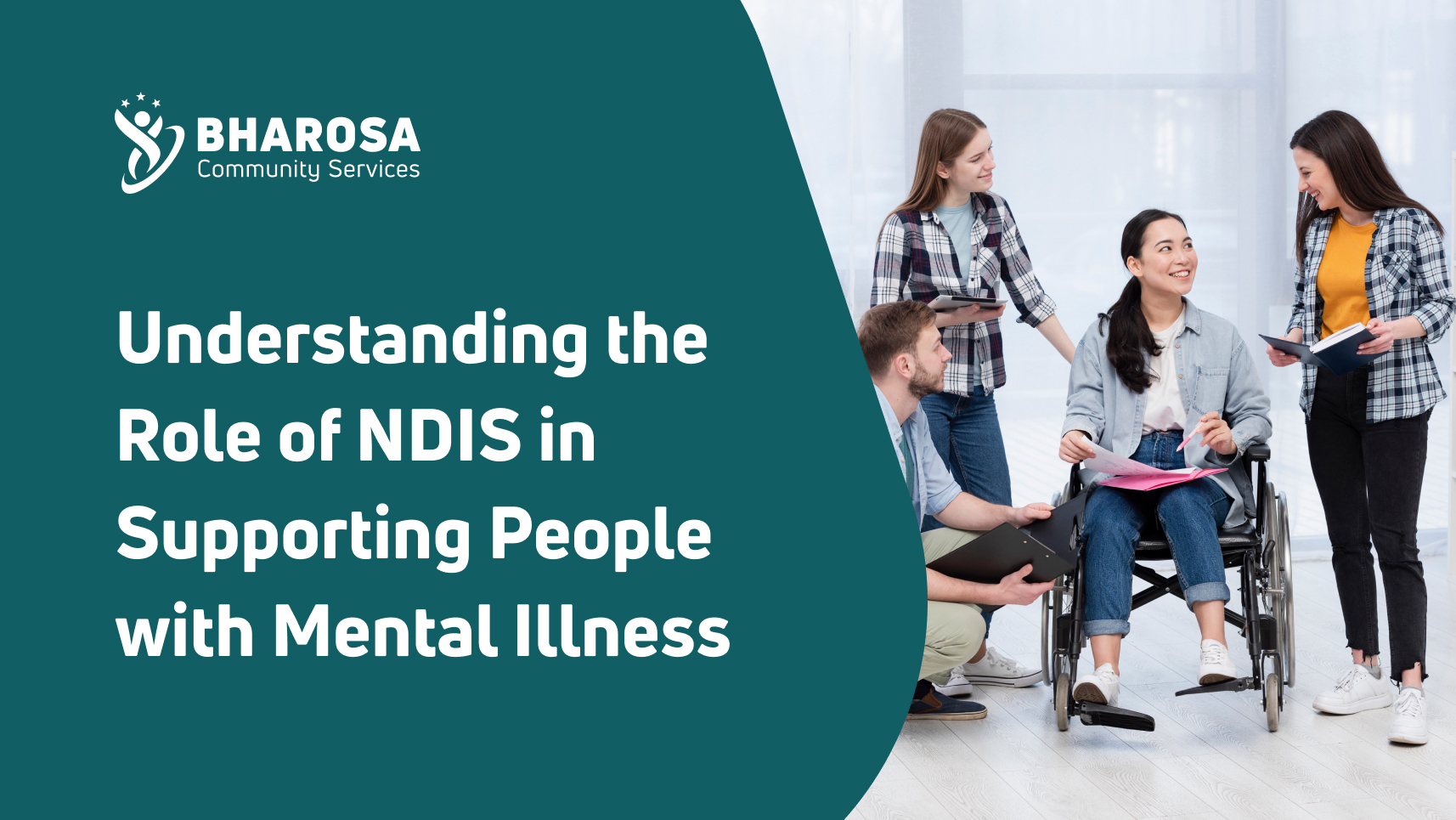The National Disability Insurance Scheme (NDIS) was introduced in Australia to provide support and assistance to people living with disabilities. One of the key areas of focus for the NDIS is supporting people with mental illness. Mental illness is a complex and varied condition that can impact a person’s life in many ways. Fortunately, the NDIS provides a range of support and services to help people with mental illness to manage their condition and achieve their goals. Supporting mental illness – for example, advocates, non-English interpreters, mental health consultants, medical doctors, and physiotherapists/OT. These are the key individuals who collaborate to improve client quality of life and well-being through the NDIS Scheme.
In this blog post, we will explore the seven key roles that the NDIS plays in supporting people with mental illness.
Providing access to funding
The NDIS provides access to funding for people with mental illness, which can be used to pay for a range of supports and services. This funding can be tailored to the individual’s needs and goals and may cover a variety of expenses such as medications, psychological therapies, and support workers. The funding helps to ensure that people with mental illness have the resources they need to manage their condition and achieve their goals.
Supporting goal-setting
The NDIS supports people with mental illness to set and achieve their goals. This involves working with the individual to identify their priorities and aspirations and then developing a plan to support them. The plan may include a range of supports and services, such as employment or education support, access to community activities, or therapy services.
Coordinating services
The NDIS works closely with other service providers to ensure that people with mental illness receive coordinated support. This may involve working with mental health services, housing providers, education and employment services, and other community organizations. The coordination of services helps to ensure that the individual’s needs are met in a holistic and comprehensive way.
Supporting self-management
The NDIS supports people with mental illness to manage their condition independently. This may involve providing education and training on self-management strategies, such as stress management techniques, and providing access to tools and resources to support self-management. This helps to empower people with mental illness to take control of their condition and improve their overall well-being.
Supporting families and carers
The NDIS recognises (recognizes is not suitable in Australia) that families and carers play a critical role in supporting people with mental illness. As such, the NDIS provides a range of support and services to help families and carers to support their loved ones. This may include respite care, training and education, and support groups.
Promoting community participation
The NDIS promotes community participation for people with mental illness. This may involve providing support to participating in community activities and events, such as going to the movie theater, library, Australia Day and barbecue in the park, excursions sporting groups, or volunteering. The promotion of community participation helps to reduce isolation and improve social inclusion for people with mental illness.
Providing advocacy and representation
Finally, the NDIS provides advocacy and representation for people with mental illness. (Who are advocacy and representatives – please mention the government bodies) This includes advocating for their rights and needs and representing their interests at a policy level. By providing advocacy and representation, the NDIS helps to empower people with mental illness to have a voice and to participate fully in society. This can lead to improved outcomes for people with mental illness, including better access to services, improved mental health, and greater social inclusion.
In conclusion, the NDIS plays a critical role in supporting people with mental illness. Through providing access to funding, supporting goal-setting, coordinating services, supporting self-management, supporting families and carers, promoting community participation, and providing advocacy and representation, the NDIS helps people with mental illness to manage their condition and achieve their goals.
If you need any kind of services or information, Bharosa is always available.

